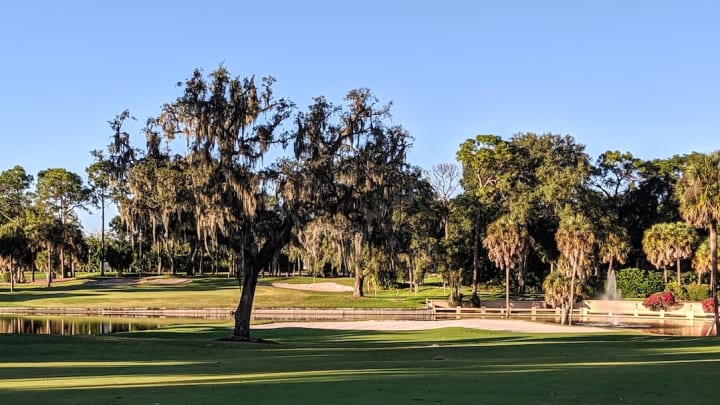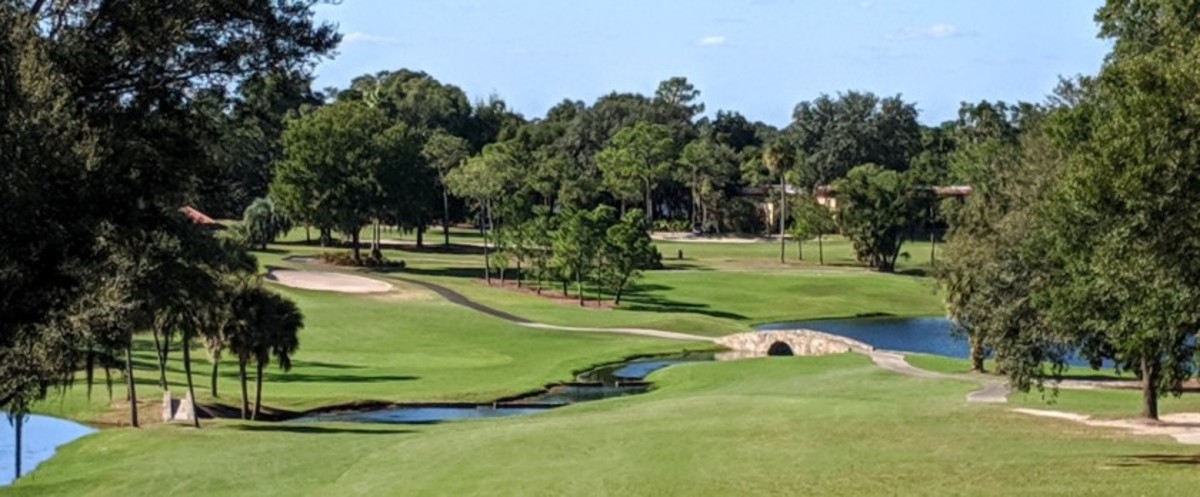El Campeon lives into its championship name

HOWEY-IN-THE-HILLS, Florida — Mission Inn Resort & Club, on the outskirts of Orlando, has two golf courses. While that is not unusual for a resort, in most instances there is a belief that the newest is typically the better. That’s not the case here.
Mission Inn’s older course is El Campeon, built in 1917. Its new one, Las Colinas, really isn’t all that new anymore. Former PGA Tour player turned broadcaster Gary Koch designed it in 1992 and another of Florida’s favorite golf sons, full-time course architect Ron Garl, spruced the course up in 2007.
Make no mistake, though. El Campeon, the 14th-oldest course in Florida, is the resort’s bigger golf drawing card — and not just for tournament or recreational rounds. The course is also a film star.
“The PGA Tour heard about the beauty of El Campeon,’’ said Michael Bowery, Mission Inn’s director of golf. “It’s become a primary chosen location for golf filming.”

In addition to the PGA Tour, which has used the course to film commercials for its sponsors, El Campeon has been used for filming purposes by Callaway, Dick’s Sporting Goods, Golf Channel and NBC Sports.
“So many courses are surrounded by homes, so (filmmakers) can’t get wide shots,” Bowery said. “El Campeon has a lot of character and great vistas. It’s a parkland course with a Florida aspect to it. It’s got elevation, by Florida standards, but our hills are just little speed bumps. That’s what makes it so unusual.”
NCAA golf regionals and championships have been played on El Campeon for 23 consecutive years and the Florida high school championships have visited the last nine years. The course has also hosted U.S. Open and U.S. Amateur qualifiers as well as qualifying tournaments for the PGA Tour’s Latinoamerica and Canadian tours.
“It’s a busy place,” said Bowery, in his eighth year on the job. He attended college at the University of Arizona with Bud Beucher, whose family has owned the Mission Hill facility since 1964. The Beuchers matriculated from the Chicago area.
El Campeon has an interesting history. The little town in which the course is located is named after William Howey, a citrus magnate. Howey, wanting something to entertain visitors to his estate in the days immediately before World War I, hired golf course architect George O’Neil to build him a golf course.
O’Neil was mainly a golf instructor in Chicago then, and he gave lessons to such diverse luminaries as former President Warren G. Harding, golfing greats Harry Vardon and Chick Evans, industrial giant John D. Rockefeller and film star Charlie Chaplin. O’Neil named the lakes on the course—after some of the top Chicago clubs – Beverly, Flossmoor and Skokie.
The course was originally called Chain-O’-Lakes Golf Course and measured 6,300 yards. There was no grass on the greens from its opening in 1917 until 1938. The putting surfaces consisted of well-oiled sand. Visitors stayed at the Bougainvillea
Hotel until it burned down in 1920.

The Bougainvillea was replaced by the new Hotel Floridian, and the course visitors included Ben Hogan, Patty Berg and Babe Zaharias before Nick Beucher, Bud’s father, took over the place and transformed it into a Spanish colonial-themed resort. El Campeon got its name after Nick Beucher took over and a Scottish architect, Charles Clarke, refurbished the course.
Today, the course measures 7,001 yards. Following several re-routing and renovation efforts, the layout has 85 feet of elevation changes. Bowery believes the unofficial low round was a 64 shot by Dustin Johnson.
The most famous — or infamous — hole is No. 17. Called Devil’s Delight, the hole may be the toughest par-5 in Florida. A double dogleg that measures 556 yards from the back tee, the hole’s green is fronted by a live oak tree in the center of the fairway and a pond. More than a few Mission Inn golfers have wished that the tree would have suffered its demise as a result of any number of hurricanes that occasionally visit the area.
Water comes into play on 14 holes, most notably No. 16. It’s a par-4 that finishes on an island green. Another hole is actually called Island Green. It’s No. 8, a 190-yard, par-3 hole that is the only one that plays in the same spot on the scorecard as it did when O’Neil completed his design.
